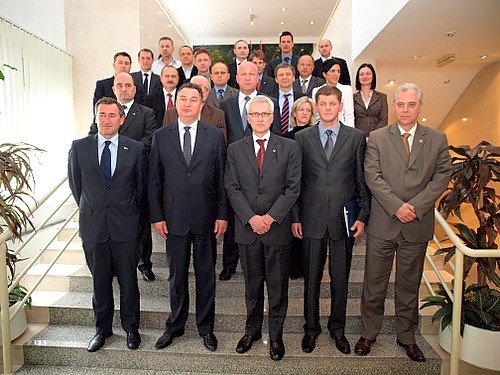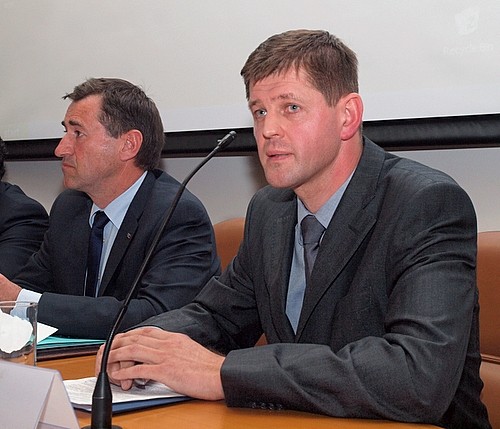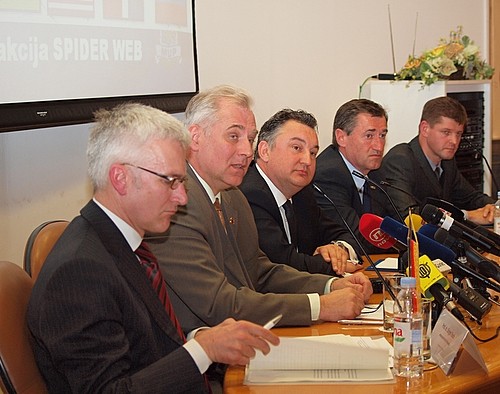The Slovenian, German, Austrian and Croatian criminal police disclosed an international criminal organisation engaged in smuggling cocaine. They arrested four Croatian nationals and seized a number of items following the arrest.
The press conference held on 18 April 2011 in Zagreb was attended by Oliver Grbić, Director General of the Croatian Pollice, Prof. Dr. Jürgen Stock, Vice-President of the Gernam Federal Criminal Police, Franz Lang, Acting Director of the Directorate General for Public Safety within the Austrian Ministry of the Interior, Dinko Cvitan, Director of the Croatian Anti-Corruption and Anti-Organised Crime Bureau, and Dr Jurij Ferme, Director of the Criminal Police Directorate of the Slovenian General Police Directorate.
Dr Jurij Ferme commended the good cooperation between the police of these countries.
Details of criminal investigation were presented by Tomislav Štambuk from the Croatian national anti-corruption and anti-organised crime bureau, and Dragan Smolčić from the anti-corruption and anti-organised crime bureau in Osijek.
Undercover investigation revealed that a larger quantity of illicit drugs - cocaine was going to be transported from Germany to Croatia. On the basis of the reports received from the Austrian and the Croatian police, the Slovenian police monitored the movement of the suspects as they crossed the border through the Karawanken tunnel to the area in the surroundings of Brežice where they were arrested since there was a likelihood that they transported a large quantity of illicit drugs.
On 12 April 2011, criminal police officers arrested and ordered a 48-hour detention for four Croatian nationals aged between 25 and 40 in the area of Brežice on the grounds of suspicion of the criminal offence of illicit trafficking in drugs, illicit substances in sports and precursors for the manufacture of illicit drugs according to Article 186 of the Criminal Code (KZ-1). On 14 April 2011 they were brought before the on-duty investigating judge of the District Court of Krško on the basis of an international arrest warrant. The investigating judge ordered judicial custody for three Croatian nationals, and one person was released for not being associated with the commission of the crime.
No drugs were found during the search of the car. However, the police seized a number of items that could be used as a proof in subsequent criminal proceedings. The criminal investigation continues.
As many as 1969 cases of criminal offences of illicit drug trafficking were dealt with in Slovenia in 2010 as compared with 2331 in 2009. According to the Production and Trade in Illicit Drugs Act, 2988 charges for criminal offence were filed in 2009. In 2010, this figure rose to 3321. The police carried out strict control in 1535 and house search in 612 cases, looking for illicit drugs. The quantities of illicit drugs seized in 2010 are comparable to those in the previous year. The police operations have shown that the so-called Balkan Trail has shifted geographically to the north-east: it now runs from Turkey directly through Bulgaria and Hungary to the Central and Northern Europe. Criminal investigations in this area normally take more time; they are more complex and always dependent on international police cooperation.




